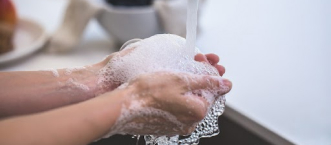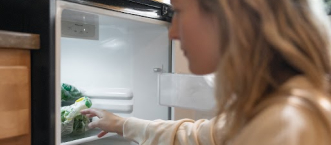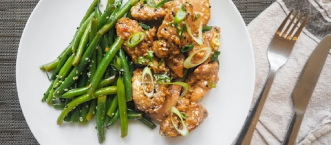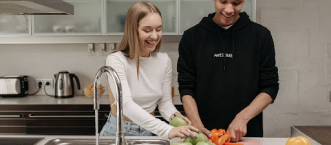Thanks for your interest in joining our Surplus Saviours community! Please read the guidance provided here to help make the scheme a success and to ensure the safe handling of food.


Surplus Saviours - Individual Collector Agreement
Please review this “Individual Collector” agreement. Your participation in surplus food collections through Neighbourly will be taken as your acceptance of this agreement, which includes the Neighbourly Product Surplus Terms and Conditions, and that you have read and understood the food safety guidance that follows. If for any reason you have queries about the guidance please contact us: food@neighbourly.com.
Currently, the Surplus Saviours programme is open to people over the age of 18 years.
![]()

UK Food Safety
As you will be collecting and handling edible items, there are a number of procedures that it’s important to follow. These procedures have been noted below and are part of the wider terms and conditions of the Neighbourly surplus programme. Your participation in the programme assumes your acceptance of the terms and conditions.
To ensure your safety and success, the following content acts as a short guide around food safety best practice. We aim to set you up with the knowledge needed to safely conduct collections and safely transport, store, prepare, consume and share food.

Collection and Delivery
Safety considerations when you are on the way to, actively collecting or on the way back from picking up surplus food;
- Keep collection vehicle clean & free of contamination
- Store food in clean containers
- Check the condition and date marks of food collections upon arrival to ensure no contamination and that the food is within safe expiry date range
- Transport raw food in a separate section to ambient food.

Hygiene
Ensure you and your environment are clean & free of contamination;
- Limit food handling times during preparation to avoid opportunities for bacterial growth
- Have access to a hand basin, hot running water, soap, clean towels & waterproof plasters and maintain good personal hygiene
- Don’t allow pets or young children to be in contact with stored food
- Don’t participate in collections when suffering from an illness, carrying a transmittable disease or if you have infected wounds
- Keep long hair tied back and away from food items
- Use clean surfaces, utensils and equipment when handling or preparing food.

Storage
Ensure you and your environment are clean & free of contamination;
- Store chilled foods at or below 5 degree refrigeration temperatures to prevent bacterial growth
- Keep foods properly covered or wrapped during storage to stop contamination. Store food containing allergens in sealed containers separately to other products (where necessary)
- Check expiry date codes to ensure no spoiled foods are kept beyond shelf life limits
- Store raw food at the bottom of the fridge and cooked food above
- Store food in clean, suitable containers
- Store frozen products in a freezer at a temperature of between -18°C and -24°C
- Only freeze food within the ‘Use-by’ date. Foods may be frozen beyond the ‘Best Before’ date.

Food sharing
Safety considerations when you are sharing the surplus food you have collected with family, friends or community members;
- Use clean and sanitised equipment during food preparation
- Make it known when food with allergens is being offered
- Do not share any contaminated or Use-by date expired food.

Cooking
Safety considerations when you are cooking the surplus food you have collected;
- Follow recommended cooking times and check cooking temperatures to ensure harmful bacteria are destroyed through sufficient heat
- Cover or wrap foods during refrigerated storage post-cooking to prevent them becoming contaminated.
For further information
https://www.food.gov.uk/consumer-advice/food-hygiene
https://www.food.gov.uk/food-safety
https://www.food.gov.uk/about-us/key-regulations
![]()

Collector Charter
Anyone collecting donated goods agrees to act in a responsible, ethical and professional manner when interacting with donors, their employees and the general public. This includes, but is not limited to;
- Being courteous, patient and respectful to all employees, clients or associates of any donor organisation. Refraining from any rude, abusive, aggressive, threatening or insulting acts, language or gestures
- Refraining from any collection activities while noticeably under the influence of alcohol, controlled substances or other intoxicants
- Accurately representing the collection programme and not intentionally misleading any donors or their representatives regarding intended use of donations
- Keeping confidential any sensitive information encountered related to a donor’s business operations, clients, or donations
- Not photographing, recording or sharing images/details identifying donors, their facilities or representatives without obtaining clear, written consent in advance
- Listening to and complying with any site-specific collection instructions, directives or restrictions provided by donors with respect to accessing premises, parking, loading areas, entrances etc.
![]()

Steps for collecting food surplus
- You will receive a notification alert from Neighbourly confirming your donation. There is a button on the notification where you can confirm your collection
- If you are unable to collect, respond to the notification as early as possible so we can notify a back-up
- Take a copy of your Neighbourly food alert with you to the collection to show store staff. This provides proof that you are the correct collector
- Enter the store through the front customer entrance and make yourself known to a member of staff. Loading Bays are restricted to store colleagues only and should not be entered or used when picking up surplus donations
- Follow any store Health and Safety procedures that you are given and always exercise caution in any back of store or warehouse areas
- Remember to take along suitable boxes or carrier bags in which you can safely transport the food
- Lift heavy items safely, use any equipment safely and operate your vehicle safely
- You will be asked to take all items in each donation (within reason), in order to minimise food waste
- If you are scheduled as a back-up collector you will only receive a notification if the primary collector for that day has cancelled
- Notify Neighbourly if you have any health or safety concerns related to your collection activities or the condition of any donated goods.